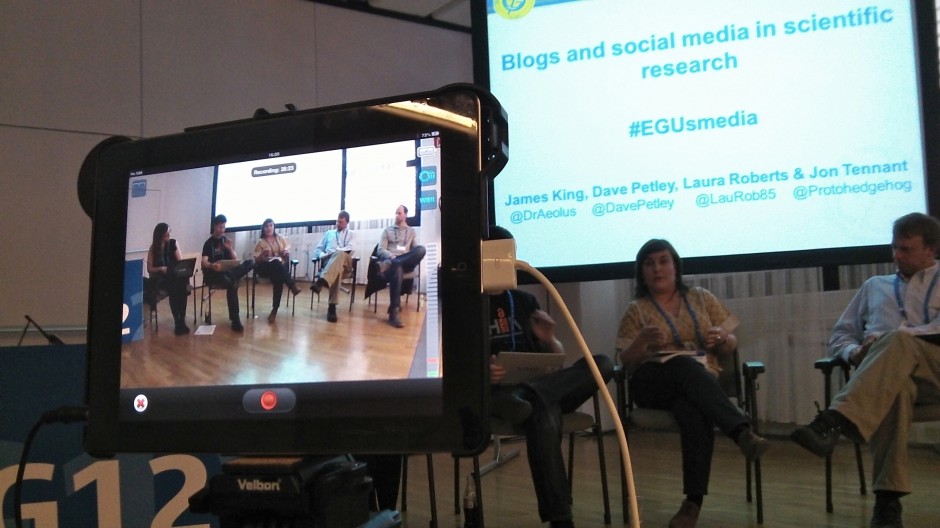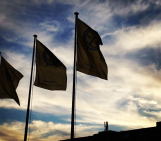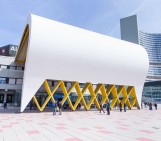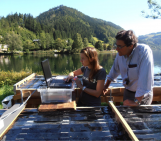This year there are more short courses than ever to choose from at the General Assembly. You can supercharge your scientific skills, broaden your base in science communication and pick up tips on how to boost your career – be it in academia or outside. Here’s a small selection of what’s in store at EGU 2015:
Supercharge your science – new techniques and dealing with data
- Short course on soil mapping methods (SC1/SSS0.15)
- Advances in monitoring and hazard assessment at active volcanoes (co-sponsored by NEMOH) (SC13/GMPV6.9/NH10.2)
- GPlates – make your own plate-tectonic reconstructions (SC20)
- Natural Hazard Teaching Demonstrations (SC38/EOS20/NH10.3)
- Thermodynamic modelling in Earth Sciences (SC36/GMPV7.14/TS10.3)
- Seismology for non-seismologists (SC42)
- How to write a paper in geomorphology (SC47/GM11.2)
- What role for young scientists in the climate change debate? (SC49)

Dealing with data. (Credit: OpenLearn LabSpace)
Tips and tricks to boost your career
Being able to secure your own funding for research is key to a successful academic career and will give you important skills applicable to industry jobs too, so why not check out these two grant writing courses?
- How to write a successful ERC Starting Grant proposal (SC19/TS10.1)
- Finding Funding: how to apply for a research grant (SC39)
Additionally, you can also improve the chances of landing your dream job by attending these career development sessions. Both of these are ticketed and you should buy yours prior to the event. Follow the links below to find out how.
- Your Career 1: Adding Value to your Research Experience (SC30)
- Your Career 2: Job Applications and Interviews (SC31)

Looking for your next position? Pick up some skills at the EGU 2015 careers courses. (Source)
You can also gain very useful insight from those who have done it before, so why not take part in your Division’s ‘Meet the masters’ session? Here you’ll be able to meet experts in the field who can give you tips on how to get the most out of your career.
- Meet the Experts – The Future of Solar-Terrestrial Research (SC44)
- Meet the masters (in Geomorphology) (SC 46/GM11.1)
- Meet the expert in hydrology – The mystery of evaporation (Open Discussion) (SC14/HS1.11)
Science communication skills
- Open Science, Public Engagement and Outreach: why bother? (SC22)
- Open Science goes Geo – Part I: Research Data (SC23)
- Public Engagement and Outreach – Science Communication, Case Studies (SC27)
- Public Engagement and Outreach – Scientists Must Film! Filmmaker Workshop (SC37)
The EGU General Assembly is taking place in Vienna, Austria from 12 to 17 April. Check out the full session programme, for a complete list of short courses available, on the General Assembly website.





Pingback: GeoLog | Union-wide events at EGU 2015